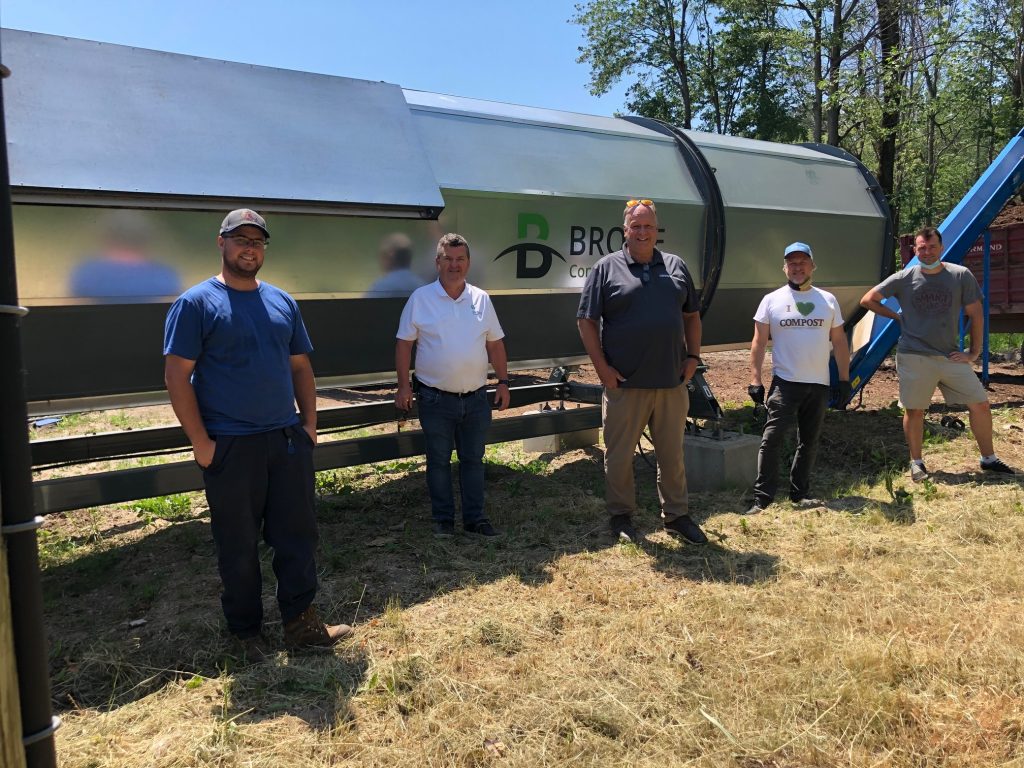
Delfland inc. has more than 1200 acres on which carrots, lettuce, radishes, onions, and French shallots are grown. This Quebec produce grower was searching for a better way to manage vegetable and plant waste. Pile composting was proving too complicated and took too much time. In sum, the crop grower was dissatisfied with pile composting their plant waste, a process which was proving ineffective and cumbersome, in addition to creating foul odours. This, in combination with the difficulty of obtaining correct documentable thermophilic temperatures, provided the motivation needed to search for a more efficient and secure composting solution.
Delfland was looking to improve the management of their plant waste while also doing something positive for the environment. In choosing composting equipment for BROME Compost, the business would benefit from an automated composting process, as well as the possibility of eliminating plant diseases through thermophilic treatment, and the ability to enhance soil biology with the application of finished, high quality compost. Learn more about BROME composting systems for produce growers here.
Funding may be available in your area for composting equipment
In Québec, the PRIME-VERT subsidy program, offered by the Ministry of Agriculture, Fisheries and Food (MAPAQ), provides funding for farmers seeking to improve their management of plant residues and in-vessel rotating composting equipment is eligible. Similar funding opportunities may be available elsewhere.
Choice of composting equipment and project objectives
After examining the case and analysing Delfland’s specific needs, the BROME team proposed a composting system consisting of the BROME 632 in-vessel rotating composter, a mixer and a conveyor in order to automate the process as much as possible. Then, in November 2019, a member of the team went on site for the implementation and start-up on the system.
According to Guillaume Cloutier, agronomist and co-owner of Delfland inc., the BROME composting system had other benefits and also met his objectives.
Benefits:
- Recycle waste sorted out in the area reserved for packing French shallots produced 100% on the farm, and retrieve unsaleable vegetables
- Spread the finished compost on the farm fields in order to improve soil health
- Ensure the compost is innocuous in order to meet hygiene requirements
- Reduce odors and environmental risks associated with the previous method of managing organic waste
 Brome Compost
Brome Compost